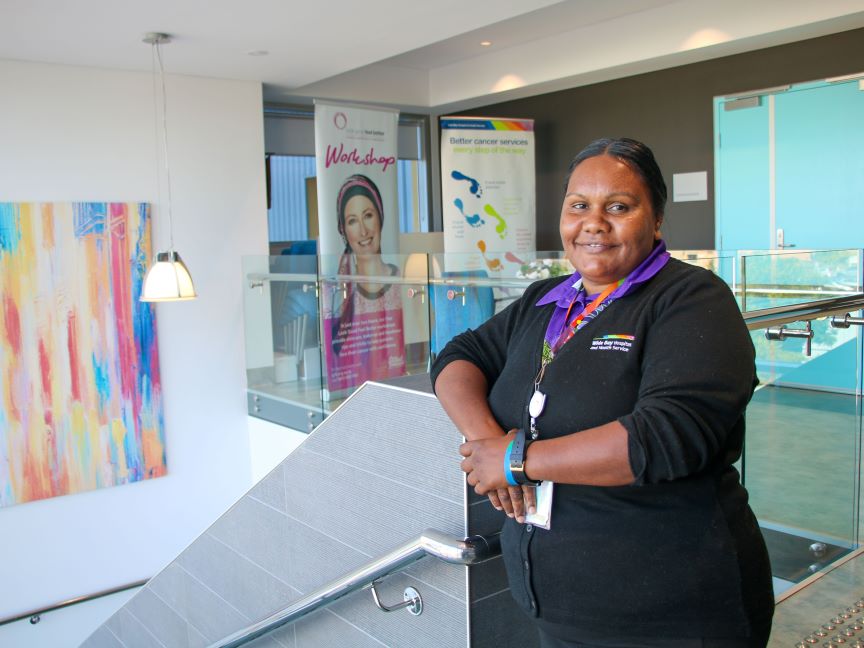
Grace Harris has been straight to work as WBHHS’s first Aboriginal and Torres Strait Islander Health worker in palliative care.
The role has been aimed at increasing the engagement of Aboriginal and Torres Strait Islander communities with these essential services.
Recognising the significant underrepresentation of First Nations communities in palliative care, Grace's role is to bridge the gap by providing culturally sensitive care and fostering trust.
In her role, Grace emphasises the importance of community-based care.
"We provide specialised palliative care to patients in their own homes, ensuring they receive the best quality of life during their final months," she said.
Grace and her team visit patients' homes to conduct assessments, often utilising telehealth for initial evaluations. This approach allows them to deliver personalised care tailored to each patient's needs and preferences.
One of the significant barriers Grace aims to overcome is the stigma and fear associated with hospitals.
"Many of our people avoid hospitals, believing that being admitted means they are going to die," she said.
This avoidance often leads to late-stage diagnosis and reduced treatment options.
By providing care in a familiar environment, Grace hopes to alleviate these fears and encourage earlier engagement with health services.
Grace's efforts are not just about medical care; they also focus on educating and empowering patients and their families.
"It's crucial to have end of life conversations early and to provide information in a way that resonates with our community," she says.
Grace uses her lived experiences and cultural understanding to connect with patients, helping them feel more comfortable and supported.
Grace's presence in palliative care has been met with positive reception.
"Patients appreciate seeing someone who understands their background and experiences," she says.
"I recently worked with a patient who immediately connected with me, allowing him to express his concerns more openly."
She highlights the importance of having Indigenous health workers in these roles.
"Seeing more Indigenous faces in healthcare settings reduces the number of patients who discharge against medical advice. It builds trust and ensures better health outcomes."
Looking ahead, Grace is optimistic about the future.
"With more Indigenous workers in more units, we can close the gap and improve health literacy in our communities. It's about empowering our people to take control of their health and access the services they need."
Grace's dedication to changing conversations around palliative care is evident.
"We need to move away from the idea that palliative care is only about dying. It's about managing pain, providing support, and ensuring comfort,” she said.
“We are able to access aids and support families to they can have quality time the way they want to spend it.”